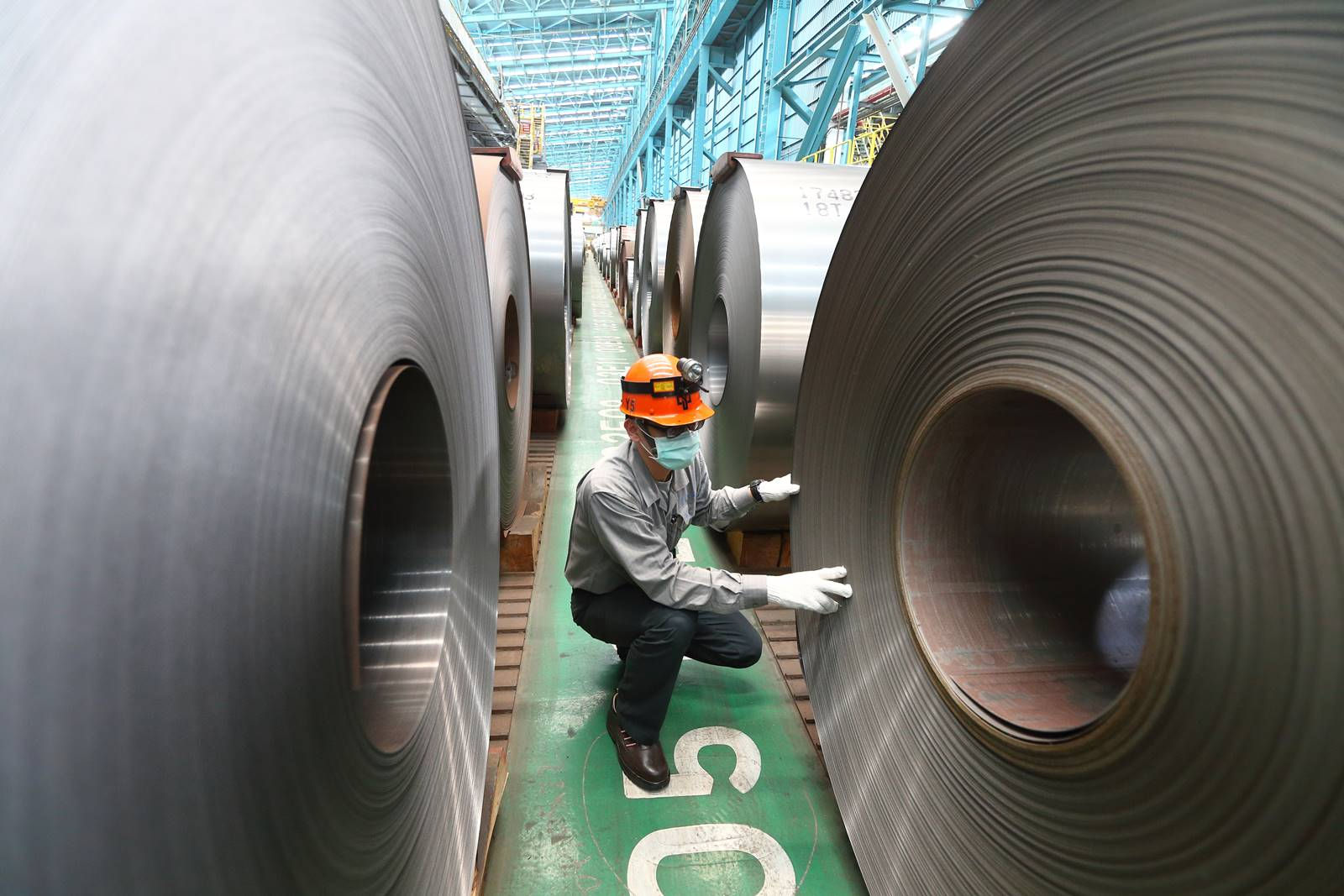How ESG investors jolted Foxconn into taking climate action

Source:CommonWealth Magazine
In recent years, foreign institutional investors have been focusing on the performance of companies in their portfolios in terms of environmental impact, social responsibility, and corporate governance, abbreviated as ESG. These funds do not want to be dragged down by corporate climate sinners. As a result, Taiwanese electronics giant Hon Hai Precision Industry Co. (Foxconn), which used to have poor climate action credentials, recently committed to clear carbon reduction targets. Listed companies and stock investors can no longer ignore the ESG approach.
Views
How ESG investors jolted Foxconn into taking climate action
By Kai-yuan Tengweb only
“We have seen a report about excessive work hours; how do you actually implement your labor policy?” asked a representative of U.S.-based investment fund Federated Hermes in his capacity as shareholder at the annual shareholder conference of the Hon Hai/Foxconn Group three years ago. By asking this question, the investment banking company threw the gauntlet down at the feet of Foxconn founder and Chairman Terry Gou.
In the past, Taiwanese electronics contract manufacturers like Foxconn had mostly only promoted ESG because of pressure from their European and North American brand customers who feared for their green image. With large institutional investors now zeroing in on ESG performance, the pressure is being taken to a new level.
Last year, Norway’s oil fund (also known as Government Pension Fund Global), the largest sovereign wealth fund in the world, sold its stakes in Formosa Chemicals and Fibre Corporation as well as Formosa Taffeta Co. Ltd. (FTC) because of labor disputes at their plant in Vietnam.
After selling the stakes, Norway’s oil fund didn’t mince words, saying in a statement that Formosa Taffeta had provided wrong working hour information and had failed to take the necessary steps to avoid labor disputes. Hilde Jervan, chief advisor with the fund’s Council on Ethics, said in an email to CommonWealth Magazine that the council conducted an onsite audit in Vietnam that revealed several violations of labor rights.
In response, FTC confirmed in a statement that the fund had investigated its subsidiary Formosa Taffeta Dong Nai Co. Ltd. over its labor practices. Noting that the oil fund’s audit method differed from the methods of FTC’s brand customers, the company decried the results as “quite unfair”.
Large investors use ESG criteria in portfolio decisions
A growing number of institutional investors are using ESG criteria when adjusting portfolio holdings. According to investment fund rating agency Morningstar, funds that use an ESG evaluation mechanism had US$1 trillion under their management at the beginning of 2020. That amount had ballooned to US$2.35 trillion by the second quarter of this year.
The total amount managed by ESG-conscious funds continues to increase, mainly because governments around the world set different carbon reduction and ESG targets. While financial institutions as such do not produce or manufacture goods, the carbon emissions caused by the companies they invest in, or their ESG performance, is counted toward the investors’ ESG performance. As a result, the financial industry has begun to demand that investees get their ESG acts together.
Cathay Life Insurance, which counts among Taiwan’s largest institutional investors, manages assets worth NT$7 trillion. Five years ago, the insurance firm founded a taskforce for responsible investment to become a “strict ESG investor”.
Senior Vice President Joe Lin, who oversees responsible investment, introduced ESG into the investment process. The first step is to exclude specific unwanted industries such as gambling, sexual services, and coal mining.
If a company has been put on the ESG watch list, the investment team must compile an evaluation report and discuss the matter in-house before the enterprise in question is listed as a company that can be invested in.
Once an investment has been made, the investee’s ESG performance must be periodically checked. For instance, at a foreign investee company of Cathay Life Insurance, a levee failed twice in five years due to lax management. The investment department discussed the matter and concluded that if governance at the company failed to improve, investment performance would suffer. Therefore, they reduced the ratio of the company’s securities held in the portfolio.
After tracking the company’s performance for a year and continuing to communicate the ESG concept, the Cathay Life Insurance team found that the flood-hit environment had been restored and that the company had established the new position of chief compliance officer. When around the same time a rating agency also upgraded the company’s rating, the insurer eventually decided, after taking all factors into consideration, to again increase its investment in the company.
Cathay pushes Foxconn door open for ESG
The ESG team of Cathay Life Insurance delivered a classical example with its participation in Climate Action 100+, an investor-led initiative that also includes BlackRock and Federated Hermes. The alliance’s goal is to exert pressure on the world's largest corporate greenhouse gas emitters to reduce their carbon footprint. Foxconn, China Steel, and Formosa Chemicals and Fibre Corporation are among the Taiwanese companies being targeted.
 (Source: CommonWealth Magazine)
(Source: CommonWealth Magazine)
“In the beginning, we weren’t able to find a proper approach to handle this,” says Lin, explaining the difficulties in pushing climate action with large corporations. A new opportunity arose in 2019 when representatives of Cathay Financial Holdings and Cathay Life Insurance met with Foxconn Chairman Gou and his management team. In the talks, they explained the importance of the ESG concept and information disclosure.
Subsequently, Foxconn set ESG targets, which reportedly led to the upgrading of the company’s credit rating that same year.
From then on, the Cathay team continued to closely discuss ESG matters with Young Liu, the head of the Foxconn Group’s Global Corporate Social and Environmental Responsibility Committee. They encouraged the electronics giant to disclose information related to climate change and to draw up a concrete carbon reduction plan.
In November of 2020, Foxconn endorsed the goals of Climate Action 100+ and institutional investors in a public statement, pledging that it would provide disclosure of climate-related financial information and strive to become carbon neutral by 2050.
Investors, including alliance member Federated Hermes, the investment bank that once questioned the electronics manufacturer’s labor practices at the shareholders’ meeting, publicly welcomed Foxconn’s commitment.
Munich-based financial services provider Allianz is one of the large players that kicked off the ESG investment trend.
In recent years, analysts with Allianz Taiwan have begun to factor ESG into their research reports instead of only looking at the financial performance of investee companies.
Such ESG-related research serves to support Allianz voting decisions at shareholder meetings. Johnson Hsu, head of overseas investment at Allianz Global Investors, says that in the past, investment trusts tended to abstain from voting in shareholders’ meetings. But in recent years, they began to cast opposing votes regarding specific issues such as excessive remuneration of directors or management decisions that lacked transparency.
Failure to heed investor demands results in less board control
Allianz statistics show that in last year’s shareholders’ meetings in Taiwan, the firm cast opposing votes in 18 percent of all decisions that were put to a vote. In the United States, there are already examples where companies lost board control because they were not willing to act on investor demands for swift climate action.
Engine No. 1, a small American activist hedge fund, earlier this year joined hands with large institutional investors BlackRock, the Vanguard Group, and pensions funds such as the California Public Employees' Retirement System to install three directors on the 12-member board of oil giant Exxon Mobil Corp. Their goal is to pressure the top management to draw up a concrete low carbon transition plan.
Under pressure from large investors, paying mere lip service to climate change, labor rights, and corporate governance won’t do the trick any longer. From now on, the large carbon emitters will have to do a much more thorough job.
Have you read?
♦ Far Eastern New Century: Partner in sustainability for top global brands
♦ Meet the men on a mission to save Tatung
Translated by Susanne Ganz
Edited by TC Lin
Uploaded by Jane Chen






